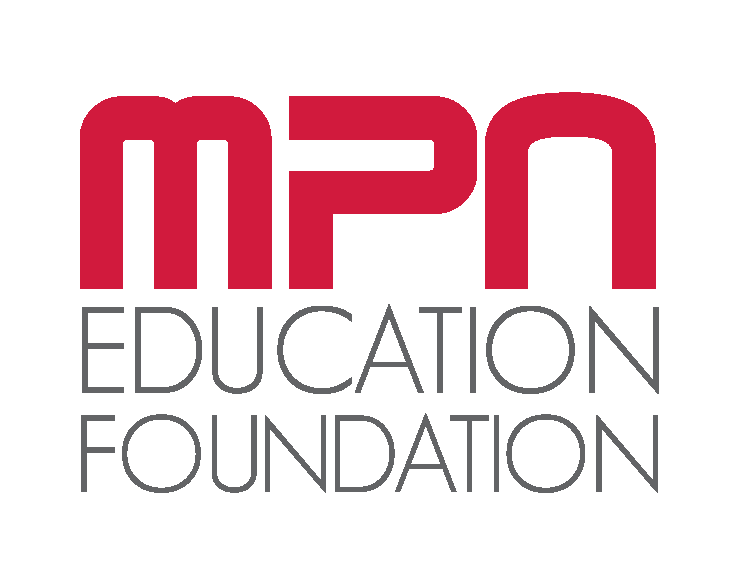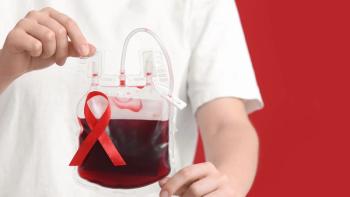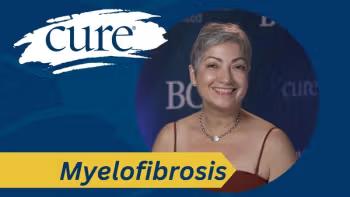
Understanding a Myeloproliferative Neoplasm Diagnosis

Transcript:
Kristie L. Kahl: After receiving a diagnosis, what is the best way for patients to learn more about their disease?
Dr. Ruben Mesa: Fortunately, there are some very high-quality materials out there. First they should really learn from their doctor and have their doctor. (They should) certainly describe in their own words what they feel, the disease they have, what are the implications, what are the implications in terms of therapy. Frequently, it's a lot of new information for patients. So, I certainly welcome patients in my practice to take out their smartphone and tape the discussion so that they can both hear it but they can also share it with loved ones if they were not in the room or things of that nature. There are some high-quality educational materials both from our education foundation, the MPN Research Foundation, the Leukemia and Lymphoma Society, amongst others.
Now, as with all good patient education, it's important that you're reading the right material that is specific for your disease. There is more than one type of MPN and even within the MPNs, there is a wide range in terms of how individuals are affected. So, it is important that they do reading, but reading that is guided or selected by their physician or health care provider to be sure that they're reading accurately regarding their disease. Similarly, if they're on medications there is typically educational materials regarding those medicines that their health care provider may be able to point them to so that they can best learn about which therapy they are on.
Kristie L. Kahl: Why is it important for a person's loved ones or their caregivers to also learn more about this disease type?
Dr. Ruben Mesa: With diseases like this, it’s a chronic disease. So, for most individuals we expect this is a disease they are going to live with for the rest of their lives. So individuals that are important in that individual's life, it's good that they understand what they're facing both in terms of their needs to be accommodations. There are some times that patients have accommodations at work, if they have difficulties with fatigue and have a hard time working a traditional schedule or other sorts of physical activities or things of that nature. Surely in terms of their loved ones or in terms of understanding what they're going through and supporting them.
Not infrequently, MPN patients can have symptoms but that are not overtly obvious. I mean patients might suffer from significant fatigue that is from the disease. It can be limiting, but they don't look any different. So, as we try to support those individuals as a caregiver or loved one it's important for us to know that to be able to help and support them.
Kristie L. Kahl: After receiving a diagnosis, why is it key for a patient to seek a specialist that treats myeloproliferative neoplasms specifically?
Dr. Ruben Mesa: The myeloproliferative neoplasms are relatively uncommon diseases. Many community hematologists and medical oncologists may have less experience with them. I will not say that that's universally the case in that I certainly have found community hematologists that treat MPNs very well and have a reasonable number of patients and that experience. But for those that do not have that experience, or this is their first, or they just have a couple MPN patients, as a chronic illness it frequently is helpful for many patients to also have seen an MPN specialist, of which many of the large cancer centers have someone that focuses on these now so that they can be a helpful part of the treatment team in terms of assessing risk discussions regarding therapy options, potential opportunities of clinical trials, or in those most advanced cases, the inclusion of other specialists who focus on the therapy of bone marrow transplant that tends to be more specific for individuals that have higher risk myelofibrosis. But again, as you can get a sense with MPN patients, sometimes the really need an entire health care team not just one individual helping care for them.
Kristie L. Kahl: Can you just explain how a multidisciplinary approach comes into play when it comes to MPN care?
Dr. Ruben Mesa: Well, with MPN patients, first they have their main provider, which is typically a hematologist that is certainly helping guide therapy, adjust medications, prescribe medications, things of that nature. Without question, that individual has their own team that are key parts of that care. That can include a nurse, that might include a nurse practitioner or an MA that are helping track symptoms, track medications, toxicities, interval symptoms or other issues which arise.
Clearly these individuals will have a primary care physicians. How this relates to the rest of their health care is important. That is another key part of that team. So, if I have a patient, from a distance they need phlebotomy, they need other things, I'm interacting with their primary care physician. If they have other medical problems, I may be interacting with their ophthalmologist asking if it is okay for them to have their cataract surgery or their knee replacement or their orthopedist or if they have a heart attack, was it from the MPN, was it independent of the MPN, interacting with a cardiologist. So again, their broader health care team but as a as a core part it at least includes a primary care doctor, a hematologist, nurses, MAs, NPS, etc.
Kristie L. Kahl: How can patients become better informed so that we can improve patient-physician conversations?
Dr. Ruben Mesa: I think really following some of those great materials from some of those sources — Leukemia Lymphoma Society, ours and others – are really key. I think understanding a bit about what is the disease, some of the evolving understanding we have regarding genes such as JAK2 and what role they play, what we are monitoring if a patient is on therapy, what to expect with that therapy, why are they on the therapy, what are the expectations and what to watch out for in terms of progression.
Usually if there is a change or a problem it doesn't conveniently occur at the time of a pre-scheduled visit with your health care provider, it occurs at some other time so having that partnership where they again can recognize that there's a difficulty and be able to alert their team is really key.
Kristie L. Kahl: Are there certain questions or things that patients and caregivers should be mentioning so that maybe we can streamline that conversation between patients and their physicians?
Dr. Ruben Mesa: I think, one, they really need to be able to relay to their physician what sort of symptoms or difficulties the disease is giving them and what really has changed — how is it affecting them. Now, some patients are more reluctant than others about bringing these things up. They don't want to feel like they're complaining or things of that nature. Again, this is not complaining. You are sharing that with a crucial relationship with your health care providers so that they can help you.
Sometimes how you're feeling might impact our choice of therapy or adjusting the dose in therapy. Additionally, sharing with your physician any side effects that you might be having from your treatments is very important. There are treatments that might give you sores in your mouth that can make you uncomfortable, make it difficult to eat. Clearly, you would want to share that with your physician. We most certainly would not want to raise the dose of a medication if it was giving you mouth sores. In fact, we might choose to change it to a different medicine that you might feel better on. The goals of our treatments are to make the disease as invisible in your life as possible. In the ideal world, we could cure the disease. Research is ongoing to try to find a cure, but until we do, if we're able to make the disease as invisible in your life as possible that is a very good goal.
Kristie L. Kahl: As a health care provider, what would you say is your biggest piece of advice for a newly diagnosed patient with an MPN?
Dr. Ruben Mesa: My biggest piece of advice is to learn a lot about your disease and also to make notes for yourself both in terms of what you have, what they expect, what questions you have so that you can relay those to your health care provider and really help to overcome that gap in knowledge and understanding. I find that there can be tremendous distress for individuals because of their lack of familiarity with such a disease. For many individuals, when they are diagnosed with this, it's the first time they've heard about it and they have never known anyone else that has had the disease. So they don't have a good frame of reference. That creates a tremendous amount of uncertainty and distress. The more we can alleviate that, the more individuals are able to come to at least a comfortable understanding of their disease and work to try to move past that.
Transcription edited for clarity.




